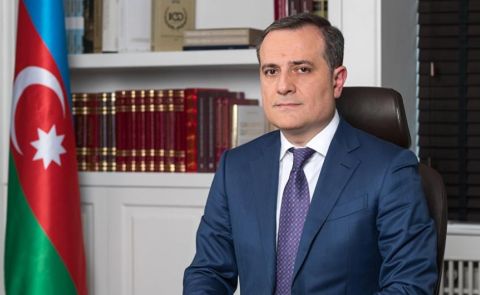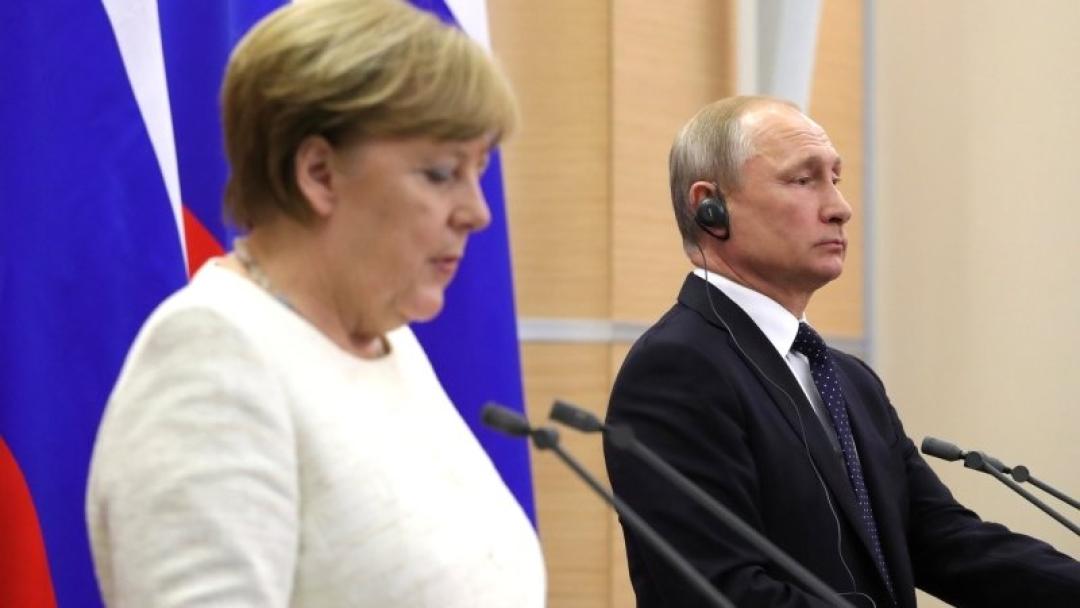
Germany expells two Russian diplomats in regard to the Khangoshvili murder case

On 4 December, the German Ministry of Foreign Affairs declared two workers from the Russian embassy in Berlin as persona non grata under the reason of insufficient cooperation with the German authorities in the Zelimkhan Khangoshvili’s murder case.
The statement of the German MFA read that the two people were expelled from the country with an immediate effect. “This expectation was last expressed by Secretary of State Michaelis to Ambassador Nechayev on 20.11.2019 in an interview at the Foreign Office. Irrespective of this, the Russian side has diligently handled the Federal Government's call to participate in the Enlightenment as in previous months,” read the statement.
“From the point of view of the Federal Government, serious and immediate cooperation by the Russian authorities remains imperative, given that [from] today the Attorney General has taken over the investigation in this case on the grounds that there are sufficient real indications that the killing is either on commission is done by state agencies of the Russian Federation or such of the Autonomous Chechen Republic as part of the Russian Federation,“ it continued.
According to a report by Der Spiegel, Germany’s highest general prosecutor in Karlsruhe decided to take on the case after forensics experts identified the assassin as the same person, Vadim Krasikov, who was sought over the murder of a Russian businessman in 2013.
The Kremlin has until now categorically denied its involvement in the murder. "We are absolutely not up to date in this case," said Kremlin spokesman Dmitry Peskov. “These are hypotheses without any basis, there is no serious suspicion,“ he added. The Russian Foreign Ministry described this move as "unsubstantiated and unfriendly."
The Caucasian Knot reported that besides the Russian and Chechen authorities, the Ingush authorities also investigated Khangoshvili’s activities in Russia. He was suspected of involvement in terror acts committed in the territory of Ingushetia, and in connection with that case, the Ingush Centre for Combating Extremism had been investigating his activities starting from 2008.
Some Russian political experts hinted that the recent diplomatic scandal between Germany and Russia regarding the Khangoshvili case might have been facilitated by Georgia. “The fact that Berlin decided to start expelling Russian diplomats may be due to chilly relations between Germany and Russia. We no longer have the confidential dialogue[] we had a few years ago. In addition, Berlin could have done this because of some contacts with third countries, in particular with Georgia,” said the Director of the Institute of Scientific Information on Social Sciences of the Russian Academy of Sciences Alexei Kuznetsov.
Khangoshvili was murdered by broad daylight in Berlin on 24 August by a mountain bike rider (Caucasus Watch reported). The British investigative journalism website Bellingcat in cooperation with the German newspaper Der Spiegel and the Russian Insider conducted an investigation in order to trace the origins of the suspect. They established that the assassin travelled to Berlin via France under a genuinely issued, non-biometric Russian passport in the name of Vadim Andreevich Sokolov, but the person did not exist in the Russian database (Caucasus Watch reported).
See Also


Nordic-Baltic Delegation Meets Armenian Leaders to Discuss Regional Cooperation and Peace

Azerbaijan Strengthens Energy Partnerships with Multiple Countries

BP Strengthens Presence in Azerbaijan’s Offshore Energy Sector

Netanyahu’s Letter to Aliyev: Mutual Trust, Solidarity Following Hamas Attacks, Facilitating Dialogue Between Israel and Türkiye

